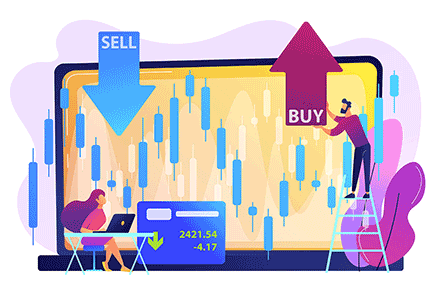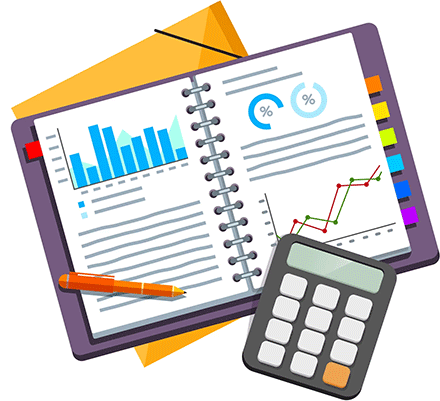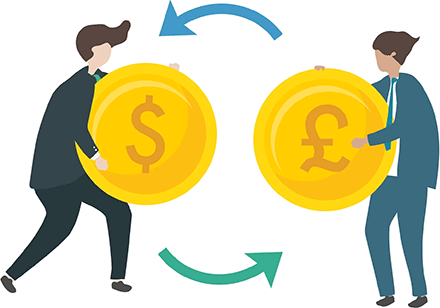The foreign exchange market, often known simply as Forex, is the largest financial market in the world, with a daily volume exceeding $6 trillion. Its vastness, combined with its accessibility to individual traders, has made it a favorite among many looking for financial opportunities. However, with great potential rewards come significant risks. Understanding and effectively managing these risks is essential for long-term success in Forex trading. Without a robust risk management strategy, even the most seasoned traders can find themselves adrift in the market, vulnerable to rapid shifts and unforeseen events. On the other hand, traders who prioritize risk management, irrespective of their experience level, position themselves not just to weather the market's storms, but to leverage its ebbs and flows to their advantage.
Main Aspects of Risk in Forex Trading
-
Leverage Risk: This is arguably the most significant risk. Forex brokers often offer substantial leverage, which allows traders to control a large position with a relatively small amount of money. However, while leverage can amplify profits, it can also magnify losses.
-
Interest Rate Risk: Changes in interest rates can influence the movement of currency pairs. A country that raises its interest rates can offer lenders better returns, often resulting in foreign capital inflows and a rise in the currency's value.
-
Country and Liquidity Risk: This involves changes in a country's economic status or market liquidity. For instance, a sudden political event can cause a currency's value to plummet.
-
Transactional Risk: Delays in transaction timings can cause differences in the expected price of a trade and the actual trade price.
Basics of Managing Forex Trading Risk
1. Educate Yourself: The first and foremost step in mitigating risks is to invest time in education. Understanding the Forex market is not just about knowing how trades are executed but delving deep into the dynamics of currency pairs you intend to trade. This means:
-
Historical Performance: Studying past behaviors and patterns can often provide insight into future movements.
-
Geopolitical Factors: Events like elections, wars, diplomatic tensions, and trade deals can significantly influence currency values. Being aware of global events and their potential impact will keep you ahead of sudden market shifts.
-
Economic Indicators: Key indicators like inflation rates, unemployment rates, and GDP growth can hint at the economic health of a country and, by extension, the strength of its currency.
2. Start Small: Diving headfirst into the vast ocean of Forex trading without proper acclimatization can be dangerous. Beginning with smaller lot sizes provides several benefits:
-
Lower Exposure: Smaller trades mean less exposure to market volatility, which can be particularly unpredictable for newcomers.
-
Learning Opportunities: Mistakes are inevitable, but they're less costly with smaller trades. Each trade, win or lose, becomes a learning opportunity without severe repercussions.
-
Confidence Building: Success with smaller trades can boost confidence, preparing you for larger trades once you're more familiar with market nuances.
3. Use Protective Stop Losses: Stop losses are not just tools; they're essential components of a sound trading strategy. By committing to exit a trade if it reaches a certain unfavorable price:
-
Automated Decision-making: It removes the emotional dilemma of whether to hold on or cut losses. The decision is made beforehand, allowing for a clear-headed strategy.
-
Capital Protection: Especially for traders who cannot monitor their trades 24/7, stop losses act as protective barriers that automatically trigger, preserving the trader's capital from drastic market downturns.
4. Set Realistic Profit Targets: While the allure of significant profits is tempting, setting sky-high expectations can be counterproductive. Here's why realistic profit targets matter:
-
Avoiding Overexposure: By setting and sticking to realistic profit goals, you're more likely to close trades at the right time instead of leaving them open in hopes of even larger gains, which can lead to potential losses.
-
Stress Reduction: Knowing when to exit with a profit, based on research and strategy rather than wishful thinking, can reduce the psychological stress associated with trading.
-
Reinforcing Discipline: Committing to specific profit targets reinforces a disciplined approach to trading, ensuring decisions are strategy-driven rather than emotion-driven.
By internalizing and implementing these foundational aspects of risk management, traders set themselves up for more consistent and calculated experiences in the Forex market.
The Necessity of Using Stop Loss Orders
In the intricate world of Forex trading, where fortunes can change in mere seconds, equipping oneself with robust risk management tools is not a mere luxury but a necessity. One of the most cardinal tools in a trader's arsenal is the 'stop loss order.' Conceptualizing a stop loss order is like visualizing a safety net for your trades, akin to an insurance policy for potential adverse scenarios. Here's a deeper exploration into its indispensable nature:
1. Protection Against the Unforeseen and Volatile Movements: The unpredictability of the Forex market is both its charm and challenge. While opportunities arise from volatility, the threats it poses are manifold:
-
Speed of Price Swings: Currency values can swing drastically in very short periods, often triggered by geopolitical events, sudden economic data releases, or central bank decisions. A stop loss order acts as a bulwark against these rapid fluctuations, automatically closing a trade before the losses spiral out of control.
-
Buffer Against External Shocks: Events like natural disasters, political upheavals, or surprise economic decisions in a globalized world can have a ripple effect on currency values. In such scenarios, a stop loss serves as an automated defensive mechanism, kicking in when traders may not be actively monitoring the market or are caught off-guard.
2. Emotional Equilibrium and Decision-making: Trading is as much a psychological endeavor as it is a financial one. Emotions, especially during trading highs and lows, can cloud judgment:
-
Detachment Strategy: Setting a stop loss is essentially defining your risk tolerance in advance. This pre-calculated move ensures that when emotions run high, the logical and strategic parameters you've set beforehand govern your trade, rather than the fear of loss or the greed of gain.
-
Guard Against Over-Optimism: Hope can sometimes make traders cling to losing positions, with the belief that the market will eventually revert. A stop loss prevents this prolonged attachment to a losing position, curbing potential losses.
3. Safeguarding Trading Capital: Capital is the lifeblood of trading. Its preservation is crucial for sustainability and future trading opportunities:
-
Defined Loss Limits: A stop loss pre-establishes the maximum amount or percentage of capital you're willing to part with on a particular trade, ensuring that even in worst-case scenarios, you live to trade another day.
-
Encouraging Discipline: Regularly using stop losses instills a sense of discipline. It subtly reinforces the idea that every trade should have a defined risk parameter, thus promoting prudent trading habits over time.
While the allure of the Forex market lies in its dynamic nature, navigating its turbulent waters requires a compass of caution. The stop loss order, with its multifaceted benefits, is that guiding instrument, anchoring trades in strategy and safeguarding them from the market's unpredictable tempests.
Understanding Risk-Reward Ratios
The risk-reward ratio is a crucial concept in Forex trading. It compares the potential profit of a trade to its potential loss. For instance, if you set a stop loss 50 pips below your entry and a take profit 150 pips above, your risk-reward ratio is 1:3.
A favorable risk-reward ratio ensures that over time, even if you have some losing trades, the wins can more than make up for the losses. As a general rule, many traders won't enter a trade unless the potential reward is at least three times the potential risk.
Risk management is not just a concept; it's the backbone of successful Forex trading. By understanding and applying sound risk management principles and strategies, traders can navigate the tumultuous waters of the Forex market, preserving their capital and maximizing their profit potential. As with any investment, there's no guaranteed path to riches in Forex, but managing risks smartly increases the odds of consistent success.
Related Materials
Forex trading, an intricate dance of buying and selling currency pairs such as EUR/USD, GBP/USD, and USD/JPY, operates continuously five days a week. Often called foreign exchange trading, the core objective is to profit from shifts in currency pair values.
The forex market has witnessed a rise in the popularity of Percentage Allocation Management Module (PAMM) services, as both retail traders and institutional investors seek out ways to diversify their portfolios and earn passive income. As 2023 unfolds, it's pivotal to identify which brokers are at the forefront of offering top-notch PAMM services..
Copy trading, a revolutionary method in the trading world, has emerged as a boon for both seasoned traders and beginners. It's an automation process that allows traders to mirror the moves of more experienced counterparts.
If the concept of hedging in the world of Forex has left you intrigued, search no further. This comprehensive article will unravel the intricacies of Forex hedging, furnish you with a practical example of a Forex hedging strategy, and delve into the "Hold Forex Strategy" and more.
The Forex market is the largest financial market globally, with a daily trading volume exceeding $6 trillion. Forex trading has become increasingly accessible to retail traders, thanks to the proliferation of online Forex brokers. However, selecting the right broker is a critical decision that can significantly impact your trading success.
Leverage is a powerful tool in the world of forex trading. It allows traders to control a large position size with a relatively small amount of capital, amplifying both profits and losses. While leverage can enhance potential gains, it also comes with significant risks. Therefore, choosing the right forex broker and evaluating their leverage offering is crucial for traders seeking success in the competitive forex market.
Brokers have a variety of ways in which they charge traders for their services. Understanding these fees and commissions is crucial for any trader who wants to manage their trading costs effectively.
The dynamics of the Forex market have dramatically evolved over the past few years, not just in terms of technology and tools, but also in how traders interact and share information...
Currency exchange rates are one of the most closely watched and analyzed metrics in the global financial market. Every day, businesses, tourists, governments, and traders seek to understand and anticipate changes in these rates, as they affect everything from the price of your morning coffee to billion-dollar business deals...
In the rapidly evolving world of online trading, where decision-making speed, strategy efficacy, and real-time responsiveness play crucial roles, preparation becomes paramount. This is where demo accounts enter the scene, offering aspirants and seasoned traders alike an invaluable platform. Designed to mimic real-world trading conditions without actual financial risk, demo accounts serve as a bridge between theoretical knowledge and real-world trading execution. They provide an arena for traders to practice, learn, and refine their strategies, ensuring they're equipped with the experience and confidence needed to navigate the often tumultuous waters of the financial markets.
Trusted Forex Brokers
| Broker | Review | Rating | |
|---|---|---|---|
| 1 | HF Markets | ||
| 2 | NordFX | ||
| 3 | Octa | ||
| 4 | FXCM | ||
| 5 | Interactive Brokers | ||
| 6 | ActivTrades | ||
| 7 | FXTM | ||
| 8 | easyMarkets | ||
| 9 | HYCM | ||
| 10 | SaxoBank | ||
| 11 | FxPro | ||
| 12 | Moneta Markets | ||
| 13 | XM | ||
| 14 | FOREX.com | ||
| 15 | Admirals | ||
| 16 | eToro | ||
| 17 | FIBO Group | ||
| 18 | Pepperstone | ||
| 19 | PrimeXBT | ||
| 20 | IronFX | ||
| 21 | Forex4you | ||
| 22 | InstaForex | ||
| 23 | INGOT Brokers | ||
| 24 | Swissquote Bank | ||
| 25 | Oanda |









